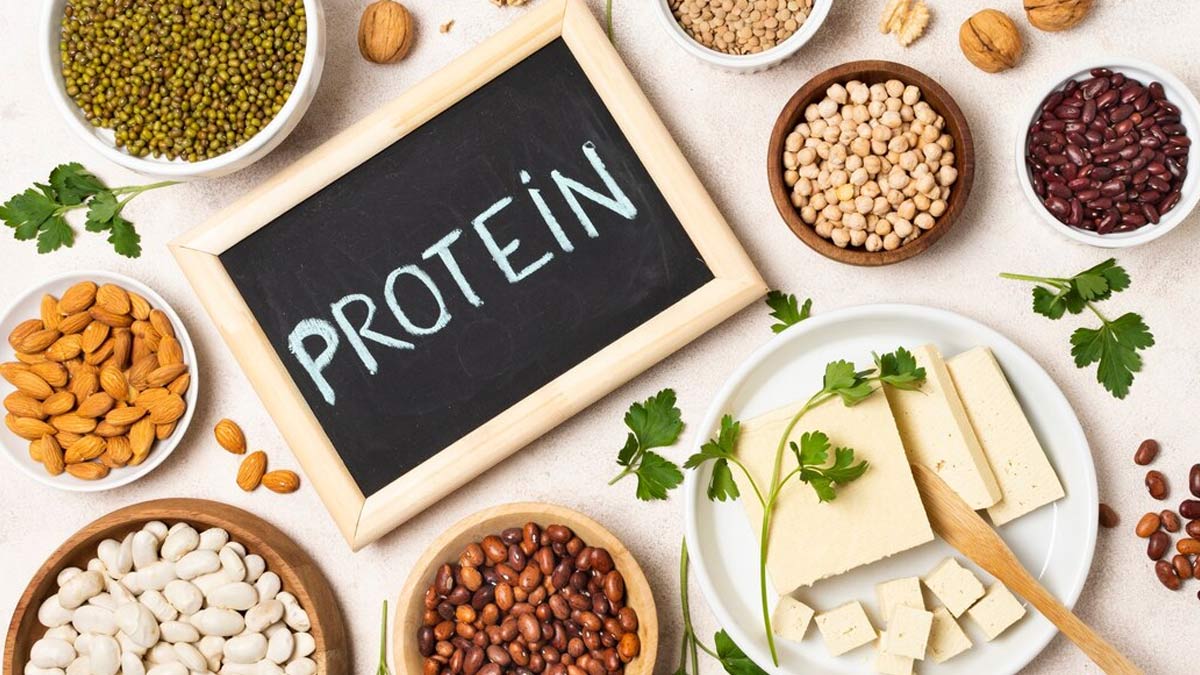
Have you ever wondered why, despite living in a world with an abundance of food choices, we often find ourselves craving protein-rich foods like meat, eggs, and dairy? The answer might lie in an intriguing concept known as the Protein Leverage Hypothesis which establishes the need for protein as a central factor that causes obesity.
The Protein Leverage Hypothesis proposes that our dietary choices and hunger are primarily driven by our need to meet a specific protein target, rather than a calorie target. In other words, we are hardwired to seek out and consume enough protein to meet our physiological requirements, even if it means overeating other macronutrients.
The idea of the Protein Leverage Hypothesis is supported in a recent study by researchers from the Charles Perkins Centre and School of Life and Environmental Sciences, The University of Sydney, Australia.
Protein Leverage Hypothesis

The study labelled a lack of protein as a significant risk factor for obesity. It concluded that at the centre of obesity lies an 'acute sensitivity to protein deficiency that humans share with many species.' the researchers found that to compensate for a low-protein meal, there is a 'compensatory increase in food intake to reduce the protein deficit,' which causes overeating.
To understand this hypothesis, we can look back at our evolutionary history. Early humans faced unpredictable food availability, and protein-rich sources like meat were scarce but essential for survival. This led to the development of a biological drive to prioritise protein intake.
Also Read: Rise And Shine: 5 High Protein Indian Meals To Start Your Day The Right Way
Fast forward to the modern era, where most of us have easy access to a wide variety of foods. Despite this abundance, this latest research suggests that we still tend to overconsume calories in our quest to meet our protein needs. The result? An excess of carbohydrates and fats, which can contribute to issues like obesity and related health problems.
Understanding Protein Deficiency

One reason behind the Protein Leverage Hypothesis is that protein is exceptionally satiating. It helps you feel full and satisfied after a meal, reducing the likelihood of excessive calorie consumption. This effect can be beneficial for weight management and overall health, and if ignored can lead to obesity, the study shared.
While this drive served our ancestors well in harsh environments, it can pose challenges in a world of calorie-rich but nutrient-poor foods.
By being mindful of our protein intake and making informed dietary choices, we can strive for a healthier, more balanced diet that aligns with our evolutionary heritage while adapting to our modern lifestyles.
Also Read: 7 Ways How Protein Helps You To Lose Weight
Remember, while protein is essential, balance is key. Listening to your body's hunger cues and choosing nutrient-dense foods will help you navigate the complex relationship between evolution, appetite, and modern nutrition. Incorporating a variety of protein sources, such as lean meats, fish, legumes, and dairy, can help you achieve this balance.







